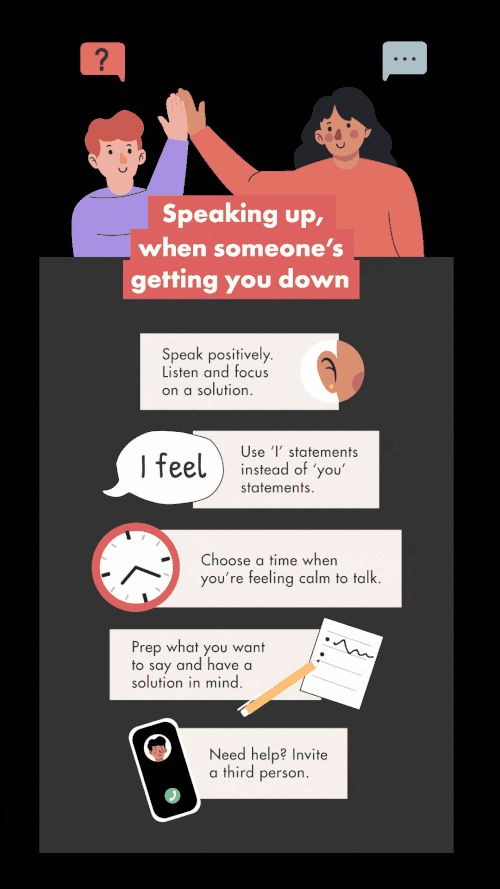Sometimes, speaking up isn’t as easy as it sounds. Let’s say you’re having a problem with someone. Just go and talk to them – easy right? You’ll talk, they’ll listen, and you’ll come to a solution without any issues.
In a perfect world that might work out fine. But in reality, things aren’t always smooth sailing, and that can make speaking up waaaay harder.
There’s a bunch of things that can make us feel stressed out, hurt, or overlooked, but the idea of communicating how we feel often has us running in the opposite direction, or just accepting that things won’t change.
The thought of confronting difficult stuff can make us feel absolutely terrified, but remember this:
Nothing takes away your power more than being silenced.
If we want to keep our wellbeing in check, we’ve got to find the courage to deal with our problems. Talking them out is one of the best ways to do this. Here’s why:





